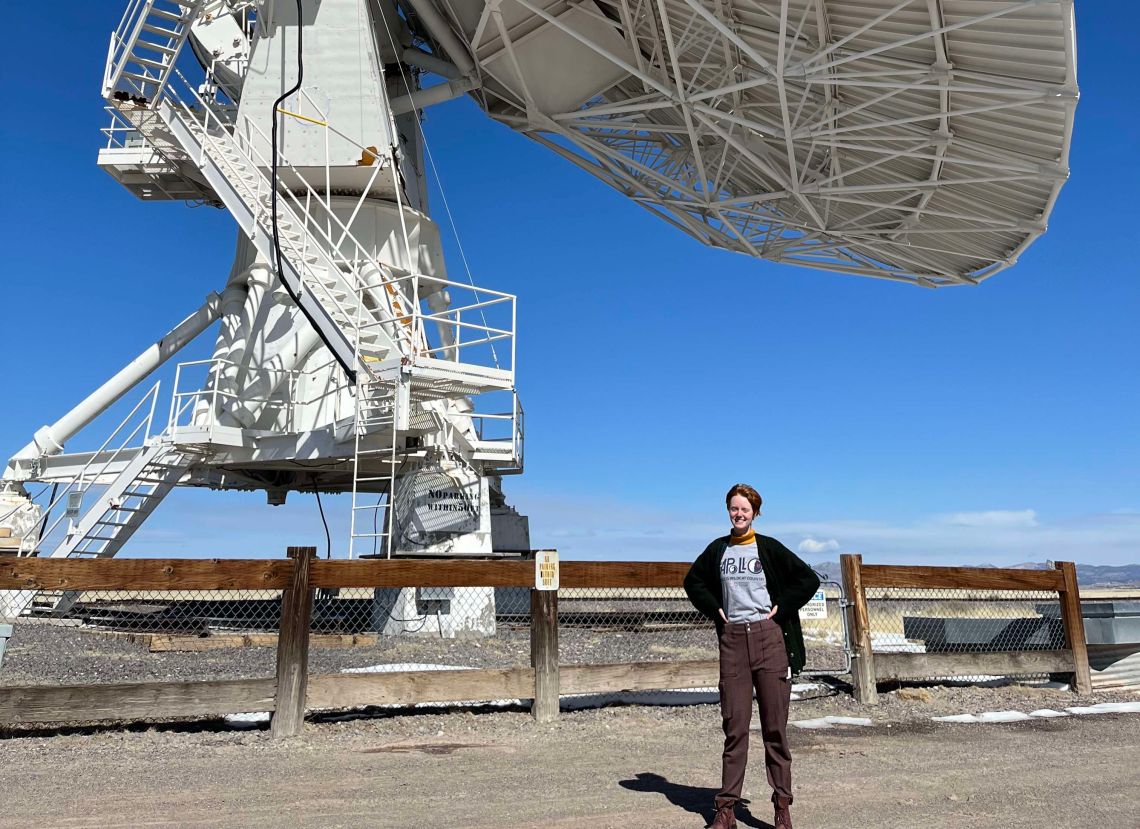Outstanding Seniors in the College of Science: Reynier Squallice

Reynier Squallice, Astronomy
This spring, departments in the University of Arizona's College of Science nominated an outstanding senior who went above and beyond during their time as a Wildcat. We are pleased to share their stories as they reflect on their time at UArizona. Next in the senior spotlight series is Reynier Squallice from the department of Astronomy.
Reynier Squallice
Astronomy
College of Science: Why did you choose your area of study?
Squallice: I chose astronomy because it combines my deep love of physics with my desire to do work that unites all of humanity, regardless of country or politics or even what century you're living in. Astronomers can both increase our understanding of some of the most fundamental questions of existence-- how we're here, whether we're alone, and what the future holds-- and push deeper on the very questions our ancestors pondered. For instance, supernova experts nowadays can examine the chemical complexities of the same stellar explosions that people all around the world saw in the sky hundreds or even thousands of years ago. In a time of heightened international tensions, the study of space can provide a vector of unification both on an ideological level and a practical level.
COS: Tell us about a class or research project you really enjoyed
Squallice: I have been incredibly lucky to work with Professor Yancy Shirley at Steward Observatory for the last three years. My work with him started as a simple chemical survey of the odd behavior of nitrogen in one star-forming region, and has ended up at the intimidating but exciting point of re-evaluating the validity of several key assumptions made throughout the last few decades of astrochemistry research. In addition to my work with Yancy, I spent last summer working with the Deep Synoptic Array team at Caltech, where I got to contribute to an amazing team effort to constrain the origins and applications of the mysterious extragalactic signals known as Fast Radio Bursts.
COS: What is one specific memory from your time at UA that you'll cherish forever?
Squallice: I will always cherish the memory of driving out to Socorro, New Mexico with my research group to present at the National Radio Astronomy Observatory symposium, get a backstage tour of the Very Large Array, and eat a lot of great food.
COS: What is next for you after graduation?
Squallice: Next fall, I'll be starting my PhD at the University of Virginia, where I intend to work with Scott Ransom at the National Radio Astronomy Observatory on using time-domain radio signals to constrain the properties of both our galaxy and the broader universe. In my spare time, I hope to work with Rebecca Charbonneau to maintain my interest in the history of space policy. I also have a fantasy novel in the works that I'm trying to get published.

